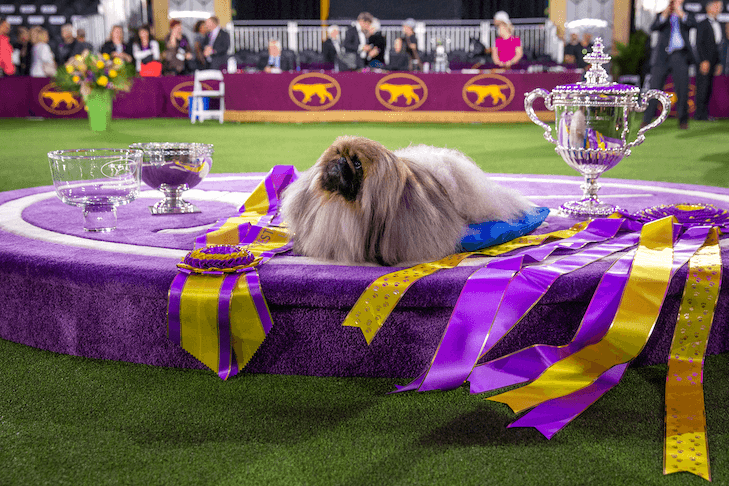Win with Humility and Lose with Grace | This Is a Mantra for All Exhibitors
“The Thrill of Victory, The Agony of Defeat.” This was the opening of the old ABC Television’s weekend show, “Wide World of Sports.” Before we had cable TV, sports coverage was very limited. To those who were sports addicts at the time, this was the weekly window into a variety of different sports; usually not the main ones of baseball, football or basketball. One week it might be track and field, and the next it might be cliff diving. Every week, you could witness a different sport and, of course, meet the winners and losers of those events.
In general, winning and losing exists in life. No matter which sports you enjoy, there are always winners and losers. (Of course, in today’s society, there are various little league-type sports—soccer, baseball, and others—where they don’t keep score because they fear the children will not accept losing very well.)
Human behavior is also a huge part of life’s equation. As everyone knows, each person is an individual with unique personality traits and behaviors. Psychology specialists break down humans into four basic personality types: A, B, C, and D. In some circles, there’s a combination that’s classified as Type X, which is a combination of two of the four listed. There is also the Myers & Briggs Foundation, which lists 16 MBTI types of personalities. Keeping these in mind, it is very understandable why we see different reactions from individuals to all that we experience in life.
In the sports world, sportsmanship is a huge indicator of a person’s respect for the sports in which they compete. In the professional ranks, we see numerous examples of both good and bad sportsmanship. However, the number of people who are displaying poor or bad sportsmanship seems to be on the rise. Every area of the sports world seems to have suffered from some type of scandal or evidence of cheating and bad behavior. Even here, in our beloved world of purebred dogs, we have suffered scandals and bad behavior for many years.
The American Kennel Club has a Code of Sportsmanship, a copy of which is usually found in each catalog at shows throughout our sport. The preface for this code reads:
The sport of purebred dog competitive events dates prior to 1884, the year of AKC’s birth. Shared values of those involved in the sport include principles of sportsmanship. They are practiced in all sectors of our sport: Conformation, Performance and Companion. Many believe that these principles of sportsmanship are the prime reason why our sport has thrived for over one hundred years. With the belief that it is useful to periodically articulate the fundamentals of our sport, this code is presented.
The code then goes on to list 15 points, concluding with the last point: Sportsmen refuse to embarrass the sport, the American Kennel Club, or themselves while taking part in the sport.
If our sport is to continue to succeed, everyone must take a good, long, hard look at themselves and ask, “Am I complying? Have I been a good sport?”
I think it is safe to say that almost every one of us, at some point, has not always behaved appropriately. I know, speaking for myself, that early on in my career I displayed poor behavior at times. I would like to think that, over the years, I have matured and seen the errors of my past. And as I am completing nearly a half-century in the sport, my mantra as an exhibitor is to be a humble winner and a gracious loser. Think about it: Win with Humility, Lose with Grace.
One only needs to look at this year’s Westminster Best in Show winning handler, breeder/owner David Fitzpatrick, as a shining example of a true professional. David, always with a friendly smile, is devoted to his breed. Win or lose, I have never heard him badmouth a judge, fellow exhibitor or another person’s dog—in private or in public.
When you look around the sport of purebred dogs, people like David are few and far between. Bill and Taffee McFadden also come to mind as individuals who exemplify AKC’s Code of Sportsmanship. There are others, of course, but I think it is safe to say that the majority of today’s exhibitors and handlers do not display the ability to accept their wins and losses without public comment. Today’s judges fall victim to social media attacks regularly, and competing exhibitors think nothing of running down the competition that just beat them in the ring.
Exhibitors, as well as professional handlers, need to learn how to be considerate of others. They also need to remember that there are eyes and ears everywhere, and many conversations are overheard by others. Sometimes, the people who are brand new or who are considering getting into our sport are turned off by these people. I know that judges don’t appreciate it when they are confronted by those who have lost.
Judges are supposed to judge the dogs in front of them on that day and at that moment, according to the standard for the breed—as they understand it. Handlers, professional and amateur, have the job of presenting their charge to the best of their ability. If an exhibitor has a very good dog, but does not know how to show it to best advantage, why do they blame the judge because he or she could not see the specimen at its best? Likewise, just because a dog has a winning record does not mean it is always the best one on any particular day.
I understand that every one of us enters a show to, hopefully, win. But let us all be realistic. There are more losers at a show than winners, and congratulating the winners and supporting them is a sign of good sportsmanship. When you are the winner, you appreciate it when others congratulate you and offer encouragement in the Breed or Group ring. Who knows? At the next show you may be the winner and yesterday’s winner may be congratulating you!
When I got into this sport, winning was important—but it was not the only thing. The breeders and exhibitors talked to each other, shared lunch, cheered for each other in the Group, and shared knowledge and ideas. Our goals were not only to earn championships and win Group placements, etc. but also to work together to maintain and improve the health and integrity of our breeds. Sportsmanship was important.
Sportsmanship is still a very important part of all sports. The good sportsmen are appreciated and admired, while the poor sports gain a reputation that is not flattering and is damaging to everyone.
As I mentioned earlier, each of us has a unique personality just as each dog we show is a unique individual. We owe it to our sport and to our dogs to behave with integrity and support one another. My hope is that we can all learn to be humble winners and graceful losers. If we do this, not only will our sport benefit, we will also feel good about ourselves. What do you think?
Win with Humility and Lose with Grace | This Is a Mantra for All Exhibitors









